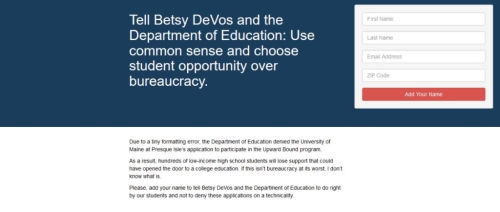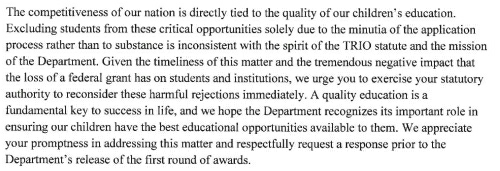Email Persists
 A survey shows that CIOs (73%) and office workers (53%) agree that email will continue as the primary internal communication tool through at least 2020. When instant messaging became popular around 2004, analysts predicted it would outpace email, which obviously hasn't happened. Reports of email's demise were common until about 2010, when people may have realized how stubborn the technology is.
A survey shows that CIOs (73%) and office workers (53%) agree that email will continue as the primary internal communication tool through at least 2020. When instant messaging became popular around 2004, analysts predicted it would outpace email, which obviously hasn't happened. Reports of email's demise were common until about 2010, when people may have realized how stubborn the technology is.
Email's persistence isn't because it's a great tool. According to the MediaPost survey, CIOs did rate email best for daily communications (41%), but this is compared to other channels: in-person meetings (22%), instant messaging (13%), phone calls (9%), internal social networks (8%), and video conferencing (7%). I would argue that the channel depends on the purpose and audiences. Otherwise, this is a difficult question to answer.
The survey reporters criticized instant messaging because people expect an immediate response. But, again, this doesn't consider that IM has a different purpose and will often solve immediate problems. Academic research shows that people who use IM, perhaps paradoxically, feel they have more control over their work, possibly because they get work accomplished through IM instead of having to wait longer for an email response. Then again, in some circles, people are expected to respond to email immediately as well.
Discussion:
- What's your view of email compared to other communication tools, such as, instant messaging?
- What's the real value of email compared to other tools? Why do you think it has persisted?
- What's your biggest frustration with email?
- What, if any, tools, such as Slack, have you used to help manage email? What have you found helpful?
Comparing CEO Statements
 A writer for The New York Times doesn't condemn CEOs for leaving President Trump's business advisory councils, but she says that we should expect more, particularly from those who gave what she considers vague statements. Zoe Greenberg writes,
A writer for The New York Times doesn't condemn CEOs for leaving President Trump's business advisory councils, but she says that we should expect more, particularly from those who gave what she considers vague statements. Zoe Greenberg writes,
It's fine to thank these executives for doing the right thing. But to look to these men as brave leaders? Let's not lower our standards, both politically and morally, so far that we're cheering for the absolute bare minimum of human decency.
She gives the example of Brain Krzanich of Intel's statement:
I resigned to call attention to the serious harm our divided political climate is causing to critical issues, including the serious need to address the decline of American manufacturing.
The Los Angeles Times rounded up 15 CEOs' statements about their decision to leave, some before the Charlottesville incident. Comparing the statements and the reasons they identified is an interesting exercise. Some executives used the opportunity to promote their companies, and some gave more specific reasons that others.
Discussion:
- Which executives most used the opportunity to promote their company?
- Which gave the most vague and most specific reasons for leaving?
- What other differences do you notice?
- Which statements do you find most effective and why?
CEOs Leave President Trump's Business Advisory Councils
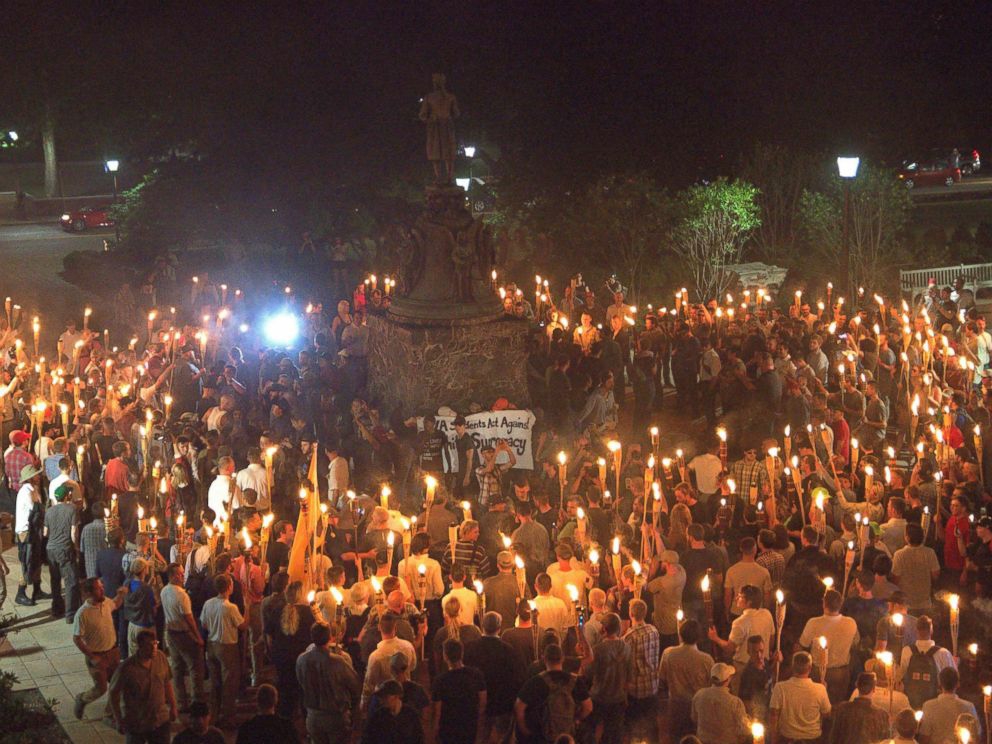 Several CEOs have left or were planning to leave President Trump's business advisory councils after his response to the Charlottesville, VA, incident. President Trump has been stalwart in blaming "both sides" of the protests in Charlottesville, which escalated in violence. For some CEOs, the response wasn't strong enough in condemning white supremacists. In a news conference, President Trump said there was violence among the liberal contingent as well as those wanting to, for example, defend confederate statues. He drew an analogy between George Washington and Thomas Jefferson, who owned slaves, with Robert E. Lee, who led the confederate army during the U.S. civil war.
Several CEOs have left or were planning to leave President Trump's business advisory councils after his response to the Charlottesville, VA, incident. President Trump has been stalwart in blaming "both sides" of the protests in Charlottesville, which escalated in violence. For some CEOs, the response wasn't strong enough in condemning white supremacists. In a news conference, President Trump said there was violence among the liberal contingent as well as those wanting to, for example, defend confederate statues. He drew an analogy between George Washington and Thomas Jefferson, who owned slaves, with Robert E. Lee, who led the confederate army during the U.S. civil war.
Merck chief executive Ken Frazier was the first to resign from the president's manufacturing council. Others filed suit, and still others planned to resign, including Indra Nooyi of Pepsi, Jamie Dimon of JP Morgan, Alex Gorsky of J&J, and Jeff Immelt of GE.
Doug McMillon, Walmart's chief executive, has been vocal and has faced criticism from Walmart customers. In a memo to employees, McMillion explained his position:
As we watched the events and the response from President Trump over the weekend, we too felt that he missed a critical opportunity to help bring our country together by unequivocally rejecting the appalling actions of white supremacists. His remarks today were a step in the right direction and we need that clarity and consistency in the future.
Our country is facing some very difficult issues that require our elected officials, business leaders and community-based organizations to work together. Representing a company with the largest and one of the most diverse groups of associates in the U.S., and an even more diverse customer base of tens of millions of customers, we believe we should stay engaged to try to influence decisions in a positive way and help bring people together. I will continue to strongly advocate on behalf of our associates and customers, and urge our elected officials to do their part to promote a more just, tolerant and diverse society.
Thank you for representing Walmart and our values today -- and every day.
Before another group, inspired by Nooyi of Pepsi, could resign, President Trump decided to disband all of his business advisory councils. The decision is a blow to the president, who prided himself on his business relationships when taking office.
Discussion:
- Did these business leaders do the right thing? Why or why not?
- What did it take for Merck's CEO to take the lead, and for Pepsi's CEO to inspire the next wave? What was at risk for both of them and for other CEOs?
- Besides addressing the Charlottesville situation differently, what could President Trump have done differently to maintain his relationships with these business leaders?
Should We Curse at Work?
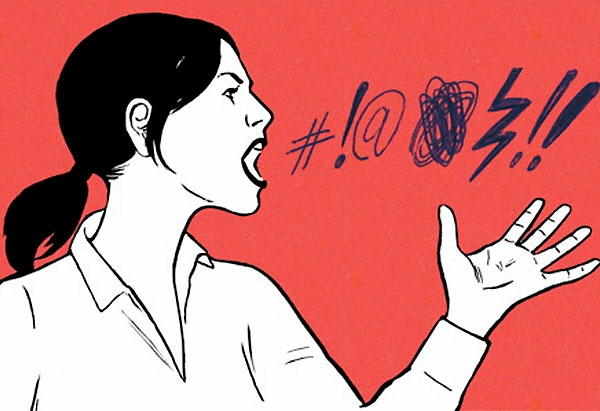 A book, What the F: What Swearing Reveals About Our Language, Our Brains, and Ourselves, explains why cursing is good for us. Author Benjamin K. Bergen also argues that cursing is a social construct: certain words are "bad" only because we say they are.
A book, What the F: What Swearing Reveals About Our Language, Our Brains, and Ourselves, explains why cursing is good for us. Author Benjamin K. Bergen also argues that cursing is a social construct: certain words are "bad" only because we say they are.
Cursing has some benefits. One study showed that swearing in response to an injury helps us tolerate pain. Another showed that swearing improved performance in bicycle and hand-grip exercises. Bergen argues that cursing allows people to show their emotional state instead of hiding it. He also says cursing brings people of similar backgrounds or cultures together.
But what about swearing at work? This seems to vary based on industry, company, and work group. Some cursing, such as ethnic slurs, are offensive and would rarely be tolerated. However, many teams will curse among themselves, depending on the relationships and circumstances.
Discussion:
- Do you curse? Why or why not? Under what circumstances would you curse or avoid it?
- How do you feel about cursing in professional work environments? What are the advantages and disadvantages?
Cargill Muslim Employees Get EEOC Support
 The Equal Employment Opportunity Commission (EEOC) is siding with Cargill employees over their right to pray at work. Employees filed a claim against the company because their opportunities to pray during breaks had been curtailed. The EEOC's support means that Cargill management will have to reach an agreement with employees on prayer time.
The Equal Employment Opportunity Commission (EEOC) is siding with Cargill employees over their right to pray at work. Employees filed a claim against the company because their opportunities to pray during breaks had been curtailed. The EEOC's support means that Cargill management will have to reach an agreement with employees on prayer time.
The issue began in Colorado in 2015 when 150 employees walked off the job in protest. Supervisors told them they would no longer be able to prayer during breaks. The employees were terminated for attendance violations.
Employees report being closely monitored so they didn't pray, for example, in the bathroom. Cargill denies such claims.
The hope is for Cargill and the employees to reach a confidential agreement. If they fail, the employees can pursue a discrimination lawsuit.
Discussion:
- What protects U.S. employees' right to pray at work?
- How would you describe the company's position?
- Assess statements by the company in the Star Tribune article. Based on these quotes, how well is the company responding to the controversy?
Irvine Finds Room for Admitted Students
 University of California, Irvine, is trying to do right by 800 students who accepted the college's admissions offer above the expected number. When making admissions decisions, colleges always consider their "yield," or the percentage of students who will enroll. Admissions officers admit more students than they have space for, assuming some won't come because of financial reasons or school preference.
University of California, Irvine, is trying to do right by 800 students who accepted the college's admissions offer above the expected number. When making admissions decisions, colleges always consider their "yield," or the percentage of students who will enroll. Admissions officers admit more students than they have space for, assuming some won't come because of financial reasons or school preference.
Initially, Irvine rescinded offers from about 500 students, but it was too late for them to enroll in other schools by that time. They informed students during the summer about transcript and other issues, which happens in a few cases each year, but this is an extraordinary number.
Then university administrators began softening. They admitted that they used standards that were too strict in order to lower their enrollment numbers. The vice chancellor wrote a message to students, including this excerpt:
We heard from some students that this year's process was too stringent and our customer-service approach needs improvement. I acknowledge that we took a harder line on the terms and conditions this year and we could have managed that process with greater care, sensitivity, and clarity about available options. Also contributing to the angst many of you have experienced is our traditional communication and outdated telephone systems that did not serve us well in this circumstance. For those who felt ignored or mistreated, I sincerely apologize.
We are making every effort to do better, immediately. I have directed the admissions team to step up the personal outreach to notified students. We're bringing in more people to review appeals and answer phones. We are committed to correcting any errors swiftly and providing the help you need in an empathetic and understanding way.
A few days later, Irvine's chancellor also apologized, and the university found a way to accommodate 290 more students. His message included this excerpt:
The stories of our students whose college dreams were crushed by our decision to withdraw admissions to hundreds of students are heartbreaking. And unacceptable.
This process is not working. We are a university recognized for advancing the American Dream, not impeding it. This situation is rocking us to our core because it is fundamentally misaligned with our values.
The apology is notable because we see so few of them from university presidents. Writers for The New York Times and Insider Higher Ed commented on the rarity of apologies, partly because of the complexity of academic institutions.
Discussion:
- Analyze the chancellor's and vice chancellor's messages. What communication principles do they use? How do the messages compare in content, tone, word choice, and organization?
- What should Irvine have done differently in this situation? What are all of the touch points with students that could have been improved?
BMW Denies Collusion
 German automakers felt another blow this weekend when they were accused of colluding. The news came as Daimler recalls 3 million cars, and Audi recalls 850,000 to lower their emissions.
German automakers felt another blow this weekend when they were accused of colluding. The news came as Daimler recalls 3 million cars, and Audi recalls 850,000 to lower their emissions.
German officials found documents related to a potential technology cartel when looking for evidence about potential anti-trust issues related to steel. To avoid penalties, VW and Daimler admitted meeting regularly with competitors. Spiegel magazine quoted VW as saying five German carmakers met "several times a year" and had been "co-ordinating the development of their vehicles, costs, suppliers, and markets for many years, at least since the Nineties, to the present day."
One area of discussion was about the size of the technology to hold AdBlue, a chemical cleaning substance. Automakers agreed on a smaller tank to reduce costs and allow more room for accessories, such as audio, but this meant less efficient cleaning of exhaust gases.
In a statement, BMW denied the accusations:
"BMW vehicles are not manipulated and comply with respective legal requirements," and "The BMW Group categorically rejects accusations that Euro 6 vehicles sold by the company do not provide adequate exhaust gas treatment due to AdBlue tanks that are too small."
VW may have learned a lesson from the emissions scandal. A New York Times article summarizes how earlier admissions may have helped avoided trouble:
If Volkswagen had been honest with American officials [in May 2014 when Winterkorn received a memo about the inconsistent test results], the damage to the company's reputation and finances would very likely have been serious but not devastating. Similar cases suggest that Volkswagen would have paid a fine in the hundreds of millions of dollars.
Discussion:
- Assess BMW's strategy. What principles of persuasion is the company using? What crisis communication techniques would be useful to the company at this point?
- To what, specifically, is VW admitting? What, specifically, is BMW denying?
- Where's the line between meeting and collusion?
Walmart Apologizes for Racist Description
 Walmart blamed a seller for a racist description of a hair weaving net. The blurb included the "N-word" as an adjective with "brown" for the product color.
Walmart blamed a seller for a racist description of a hair weaving net. The blurb included the "N-word" as an adjective with "brown" for the product color.
Walmart removed the description and issued an apology, shown here.
 The seller, Jagazi in the United Kingdom, said someone was using its name to sell products on Walmart's website. Jagazi wrote a statement denying connection with the product but didn't mention the racial slur.
The seller, Jagazi in the United Kingdom, said someone was using its name to sell products on Walmart's website. Jagazi wrote a statement denying connection with the product but didn't mention the racial slur.
We woke up this morning to the news that someone has used our name, Jagazi, to list an item. Please beware that we are reporting this to as many people as we can and trying to get all the listings pulled down. The real Jagazi is a 100% black company for black people. People have often used our brand name to try and sell their products. Please be aware. Very sorry for all the distress this has caused. We are feeling the pain here as well. Most shocking!
An AOL article author criticizes Jagazi for "indicating some offense to the racial slur and much offense to someone selling fake Jagazi on Walmart's website." Do you agree or disagree?
Discussion:
- How does a mistake like this happen?
- How well did Walmart handle the apology? Should the company take more responsibility? Why or why not?
- Assess Jagazi's response. What, if anything, should Jagazi have done differently?
- The AOL article has a punctuation error. Can you find it?
Mika Brzezinski Responds to President Trump's Tweet
 President Trump had contained some of his comments on Twitter since taking office-until now. He tweeted about Mika Brzezinski, co-host of Morning Joe, which continues the feud from last summer.
President Trump had contained some of his comments on Twitter since taking office-until now. He tweeted about Mika Brzezinski, co-host of Morning Joe, which continues the feud from last summer.
Brzezinski and Joe Scarborough (engaged to be married) aren't keeping quiet about the situation. In a long piece in Vanity Fair, Brzezinski tells more gory details about meetings and her neck surgery. They wrote an op-ed for The Washington Post, and 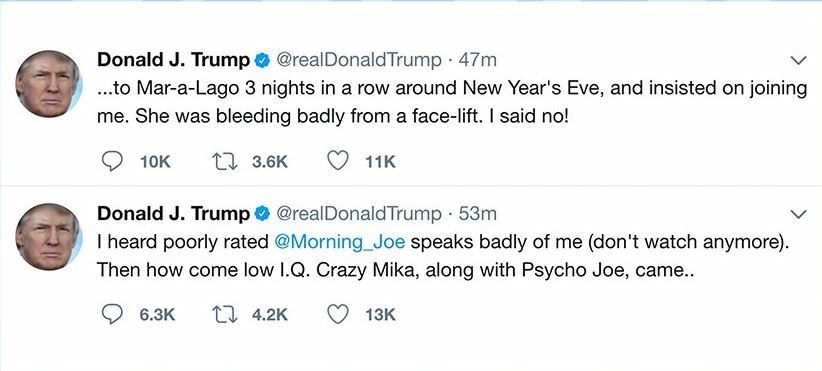
Business Insider describes the hosts refutation of Trump's claims.
The whole story sounds a bit high school: were they friends, and now they're not anymore?
Business Insider also reported Brzezinski's response about the tweet:
Brzezinski said she was "fine" after the attack, adding that her family "brought me up really tough."
"This is absolutely nothing for me personally," she said. "But I'm very concerned about what this once again reveals about the president of the United States. ... It does worry me about the country."
"We're okay," Scarborough said. "The country is not."
Discussion:
- The op-ed piece is titled, "Donald Trump is not well." Do you agree? Too harsh, just right, or something else?
- How do you assess Brzezinski's reaction? Should she and Scarborough let it go? What are their motivations?
YouTube Continues to Fight Extremist Videos
 Google announced new policies to fight offensive and inappropriate videos on YouTube and other sites. The company is responding most recently to videos promoting terrorism.
Google announced new policies to fight offensive and inappropriate videos on YouTube and other sites. The company is responding most recently to videos promoting terrorism.
When videos violate community guidelines, they will be immediately removed. In addition, in a blog post, the company identified four new strategies: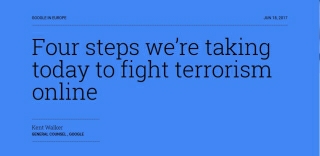
- Increasing technology to find terrorism-related videos
- Expanding the network of people and organizations to flag videos
- Applying restrictions to "inflammatory religious or supremacist content"
- Expanding its "role in counter-radicalization efforts"
The third point is interesting. Judging a video for removal is difficult, so Google will diminish potentially damaging content by posting a warning and not allowing comments, endorsements, or monetization (they can't accept advertising). General Counsel Kent Walker writes, "That means these videos will have less engagement and be harder to find. We think this strikes the right balance between free expression and access to information without promoting extremely offensive viewpoints."
Discussion:
- Analyze Walker's blog post. Who is the audience, and what are his communication objectives? How would you describe the writing style? What organizational strategy does he use?
- How well do you think Google is balancing freedom of expression with damage and complaints from advertisers?
- What are the potential dangers of Google's new policy? What are the benefits?
VP Pence Makes the Commencement Rounds
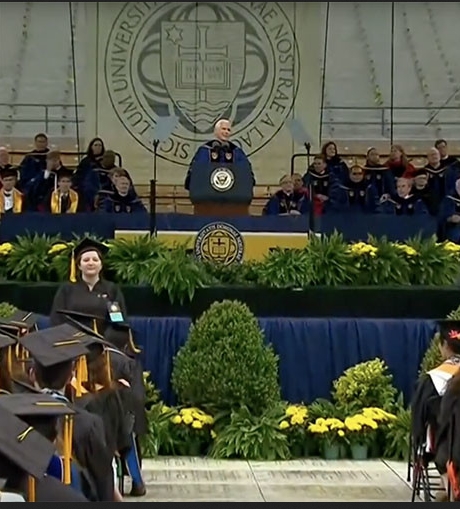 More than 100 students walked out of Vice President Pence's commencement address at Notre Dame, but he got a better reception at the Naval Academy.
More than 100 students walked out of Vice President Pence's commencement address at Notre Dame, but he got a better reception at the Naval Academy.
In his Notre Dame speech, Pence applauded the university for its commitment to free speech:
"While this institution has maintained an atmosphere of civility and open debate, far too many campuses across America have become characterized by speech codes, safe zones, tone policing, administration-sanctioned political correctness - all of which amounts to nothing less than suppression of the freedom of speech. These all-too-common practices are destructive of learning and the pursuit of knowledge, and they are wholly outside the America tradition."
A statement by the students read, "Mike Pence's policies target the most vulnerable groups in our society."
At the U.S. Naval Academy, Pence spoke about character, particularly, "humility, orientation to authority, and self-control. Here's what he said about humility:
Remember that character is destiny. Be men and women of integrity. People follow people they trust.
I truly believe that among the most important qualities of leadership-whether it's in the armed forces or any other endeavor-are humility, orientation to authority, and self-control. And I encourage you to cultivate these qualities as leaders in increasing measure every day from this day forward.
With humility, consider others to be more important than yourselves. Be servant leaders. Approach every challenge as a learner and a listener first. In multiple counselors there is wisdom, and the best decisions by the best leaders come from counsel and collaboration.
Discussion:
- What's your view of the students' walking out on VP Pence's speech? Read their rationale. Does it influence your opinion?
- Assess his speech at the Naval Academy. What are the high and low points from your perspective? How would you assess his delivery skills? How might your political opinions influence your assessment of his speech?
Uber CEO Tries to Change His Image
 After many stories of Uber's questionable practices with reporters, employees, drivers, and technology, CEO Travis Kalanick is trying to change his image. A Recode author writes, "A more cuddly Uber CEO Travis Kalanick has returned to social media."
After many stories of Uber's questionable practices with reporters, employees, drivers, and technology, CEO Travis Kalanick is trying to change his image. A Recode author writes, "A more cuddly Uber CEO Travis Kalanick has returned to social media."
After a Twitter hiatus in 2016, Kalanick is back on, as Recode reports, "as the nicest CEO in the whole wide world." We see pictures of Kalanick with his mom on Mother's Day, with his parents at the Kentucky Derby wearing hats, and of his grinning face while he touches his heart.
Recode reminds us this isn't the first time Kalanick has taken to social media to try to change the company's and his own image:
After the media furor around whatever scandal of the moment died down, Kalanick tried to humanize himself - and, by virtue, the company - and often turned to puppies or children to do that.
After we saw a video of Kalanick arguing with an Uber driver over declining wages, he promised to improve. But the promise was about his leadership style. This seems like a PR fix.
Discussion:
- Assess Kalanick's approach. Who is his audience, and what are his objectives?
- Am I justified in questioning Kalanick's sincerity or too harsh?
- What else could he do to improve the company's image and his own image?
Ryan Getzlaf Calls Ref a Bad Name
 NHL Anaheim Ducks captain Ryan Getzlaf will pay $10,000 for calling a referee a name too bad to print in BizCom in the News. People say it's homophobic, which technically it is, and it's just plain ugly. (Here's a detailed, NSFW analysis of the term, if you're so inclined.)
NHL Anaheim Ducks captain Ryan Getzlaf will pay $10,000 for calling a referee a name too bad to print in BizCom in the News. People say it's homophobic, which technically it is, and it's just plain ugly. (Here's a detailed, NSFW analysis of the term, if you're so inclined.)
A statement on NHL's website, shown here, refers to " an inappropriate remark." The fine is the most allowed by the players' union.
In a statement called "luke warm," Getzlaf apologized, a little:
Read more at: http://nesn.com/2017/05/ryan-getzlaf-apologizes-sort-of-after-10k-fine-for-using-gay-slur/
A situation like that, where I'm on the bench by myself, frustration set in. There was obviously some words said, not necessarily directed at anyone in particular. It was just kind of a comment. I've got to be a little bit more responsible for the words I choose.
Definitely as a father, as somebody that takes a lot of pride in this game and the respect for it, it's tough to see somebody refer to it as (a gay slur). I didn't mean it in that manner in any way. For that to take that route was very disappointing for me. I do accept responsibility and I accept the fine.
Discussion:
- "There was obviously some words said." Help: What grammar problems do you see here?
- What make this a weak apology?
- Did the league take the right action? Some say Getzlaf deserved more of a punishment.
- What else should Getzlaf do or say?
Chobani Claim Dropped and a Muddy Apology
 Right-wing radio host Alex Jones admitted he "mischaracterized" Chobani when he posted negative messages to social media. Chobani had sued Jones for false and defamatory comments when Jones wouldn't remove posts or retract the comments. You may remember Jones for the "Pizzagate" hoax, which linked Hillary Clinton with a child sex ring at a restaurant.
Right-wing radio host Alex Jones admitted he "mischaracterized" Chobani when he posted negative messages to social media. Chobani had sued Jones for false and defamatory comments when Jones wouldn't remove posts or retract the comments. You may remember Jones for the "Pizzagate" hoax, which linked Hillary Clinton with a child sex ring at a restaurant.
This time, Jones posted on Twitter, "Idaho Yogurt Maker Caught Importing Migrant Rapists."
Jones issued this apology, and the case is said to be closed. @SorryWatch posted this commentary on the writing. Passive voice is useful for avoiding responsibility.
Discussion:
- What examples of passive voice do you see in this paragraph?
- How would you rewrite Alex Jones' apology if he wanted to take responsibility?
DeVos Steps Up About Formatting Rules
Two weeks ago, Upward Bound applications to help kids get into college were rejected for formatting errors such as line spacing. To protest, 32 members of the House of Representatives signed a letter asking the Department of Education to reconsider the grants that affected approximately 2,700 students; an excerpt is below.
In response, Betsy DeVos, Secretary of Education, established a "new policy" that prevents program officers from using page limits and formatting as "mandatory requirements":
"Program offices may suggest page limits and formatting standards (such as font size, line spacing, and the like) but may not use ignoring these suggestions as a basis to reject grant applications."
In her letter, however, DeVos does not address the recently rejected applications.
Discussion:
- What do you think DeVos should do at this point? What should she consider in her decision?
- Assess the Representatives' letter. What principles of persuasion are used, and how could the letter be improved?
Facebook Staffs Up
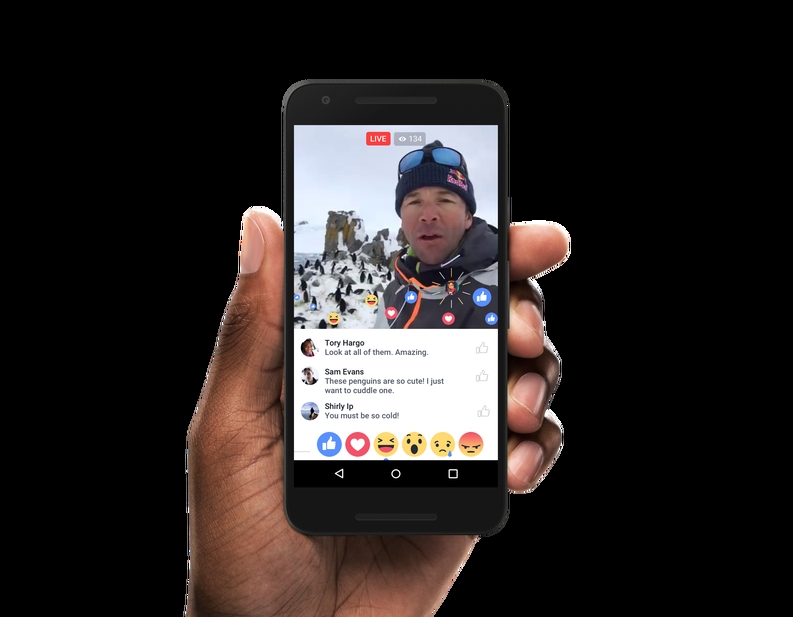 Facebook is taking more action in response to criticism about fake news, offensive posts, and violent videos. The company will hire 3,000 more people to monitor videos, hoping to avoid another situation like the one when a man recorded himself murdering another man.
Facebook is taking more action in response to criticism about fake news, offensive posts, and violent videos. The company will hire 3,000 more people to monitor videos, hoping to avoid another situation like the one when a man recorded himself murdering another man.
In a Facebook post, CEO Mark Zuckerberg wrote,
"Over the last few weeks, we've seen people hurting themselves and others on Facebook - either live or in video posted later. It's heartbreaking, and I've been reflecting on how we can do better for our community.
"If we're going to build a safe community, we need to respond quickly. We're working to make these videos easier to report so we can take the right action sooner - whether that's responding quickly when someone needs help or taking a post down.
"Over the next year, we'll be adding 3,000 people to our community operations team around the world -- on top of the 4,500 we have today -- to review the millions of reports we get every week, and improve the process for doing it quickly."
COO Sheryl Sandberg commented on the post: "Keeping people safe is our top priority. We won't stop until we get it right."
Some say the move reflects Facebook's disappointment in artificial intelligence (AI). The long-term goal is to develop the technology so it can adequately identify and remove inappropriate content. But that may be a way off.
Discussion:
- Assess Zuckerberg's post. Who is the audience, and what are his communication objectives? What works well, and what could be improved?
- What else, if anything, can Facebook do to address these serious issues?
College Prep Denied for Failing to Double Space Applications
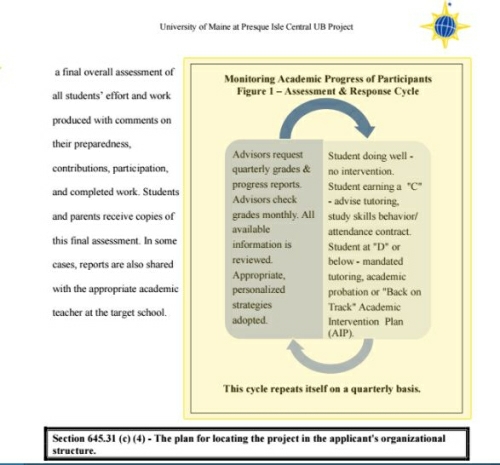 Dozens of colleges and organizations won't receive funding for Upward Bound programs because their grant applications failed to meet formatting requirements. The U.S. Department of Education, now led by Betsy deVos, rejected applications that would have served at least 2,400 low-income students who would have received tutoring and counseling to help prepare them for college.
Dozens of colleges and organizations won't receive funding for Upward Bound programs because their grant applications failed to meet formatting requirements. The U.S. Department of Education, now led by Betsy deVos, rejected applications that would have served at least 2,400 low-income students who would have received tutoring and counseling to help prepare them for college.
Applications missed the requirements because they weren't double spaced, used the wrong font, or forgot other formatting details.
Although members of Congress have appealed to Department of Education representatives, the decision seems to stand. The acting deputy assistant secretary said, "A rule is a rule. . . . I, too, have to abide by the rules." One rule is for "no more than three lines per vertical inch." In one application, shown here, an infographic contained text spaced one-and-a-half lines apart instead of two.
Discussion:
- What's your view of this situation? Is the Department of Education being too harsh, or is "a rule a rule"?
- How does this compare to grading of your writing assignments? Have you felt that instructors have been too nitpicky? What's the value of an instructor calling out formatting errors?
- The Chronicle says this decision doesn't seem motivated by the Trump Administration's cost-cutting plans. Still, what could be the political fallout if the Department of Education doesn't change its mind?
NYT Article About Uber CEO
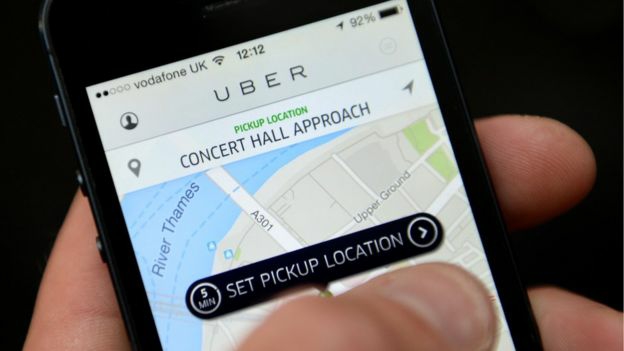 A long New York Times article chronicles Uber CEO Travis Kalanick's rise to power and what has happened since. He certainly has built a successful company, but his leadership character is not ideal.
A long New York Times article chronicles Uber CEO Travis Kalanick's rise to power and what has happened since. He certainly has built a successful company, but his leadership character is not ideal.
We have seen many reports of ignored complaints and executive departures and have seen the video altercation between Kalanick and an Uber driver. The latest report is about Uber's violation of an Apple rule against "fingerprinting." Uber was tracking iPhone users even after they deleted the Uber app.
The NYT tells of a meeting between Kalanick and Apple CEO Tim Cook in 2015. In the article, "Uber's CEO Plays with Fire," we learned that Cook summoned Kalanick to his office. Surprisingly, Kalanick "was shaken by Mr. Cook's scolding, according to a person who saw him after the meeting."
He should have been: if Apple decided to remove Uber's app from iPhones, the company could have lost millions of users.
Discussion:
- Although Kalanick may have been "shaken" by the meeting, it doesn't seem to have affected his leadership tactics. Do you agree, or is this too harsh?
- Read the article. What else do you learn about Kalanick? How, if at all, does it change your impression of him as a leader?
Adidas Apologizes for Congratulatory Message
Adidas may need a better review process. After the Boston Marathon, the company sent a congratulatory email about "surviving" the marathon, not thinking about the terrorist attack four years ago. During that event, two bombs killed three people and left several hundred injured.
The subject line to the marathoners read, "Congrats, you survived the Boston Marathon!"
Outrage was swift. People immediately saw that Adidas hadn't posted this intentionally but had failed to consider the connection and potential reaction.
The apology also came quickly and did the job. Admitting that "no thought was given to the insensitive email subject line," the company didn't make excuses or apologize "if we offended anyone"; they said plainly that it was insensitive.
Discussion:
- Are people too sensitive, or was this a real gaffe?
- How does a mistake like this happen?
- What makes this an effective apology?
Choate Apologizes for Sexual Abuse
Private school Choate Rosemary Hall, in Wallingford, CT, has uncovered sexual abuse by 12 faculty members. According to a report commissioned by the board of trustees, abuse going back to the 1960s was mishandled:
"Sexual misconduct matters were handled internally and quietly. Even when a teacher was terminated or resigned in the middle of the school year because he or she had engaged in sexual misconduct with a student, the rest of the faculty was told little and sometimes nothing about the teacher's departure and, when told, was cautioned to say nothing about the situation if asked."
Some faculty were given recommendations to transfer to other schools.
In a "Message to the Choate Rosemary Hall Community," posted on the website, the board chair and headmaster review the facts, thank the victims for coming forward, apologize, and promise action. The school hired Rape, Abuse & Incest National Network (RAINN) to review its policies and make recommendations. One conclusion in the letter follows:
RAINN has noted the strength of Choate's current confidentiality, amnesty, retaliation, and mandatory reporting policies; progressive training and education for students; and faculty and staff who are caring, empathetic, and supportive while preventing and responding to sexual misconduct on campus. Their recommendations call for continued codification of policies and procedures for reporting and investigating incidents, further review and refinement of adjudication processes, and additional training for faculty and staff who respond to incidents of sexual misconduct. We believe a commitment to constantly improving standards will provide more understanding and protection for our students.
Discussion:
- I'm skeptical reading the excerpt above. So, your policies are great? You just need to follow them? And of course, you need to do training, which everyone seems to say in these situation. Read the entire letter and form your own opinion. Am I too harsh?
- Should Choate have this letter prominently on its website? I followed a link from The New York Times, but I don't see any reference to the statement. What are the arguments for and against posted something, say, on the home page?

















